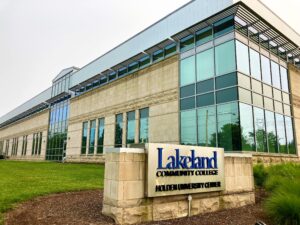As the Michigan state legislature works through the budget process for next year, it appears poised to add $70M to expand the Michigan Reconnect program. The expansion will allow students as young as 21 to participate. The program is a nice idea, but the gulf between the number of people who apply for the program and those who complete it is huge.
If the State of Michigan is serious about realizing a return on its Sixty by 30 investment, it first needs to engage the community colleges. No Michigan community college should be allowed to participate in the program until it can prove that at least half of the programs in its catalog leads to high-wage, high demand jobs. Additionally, the funds should be available only for programs that meet the high-wage, high demand designation.
The reason here is simple: the State should not pay to train people for low-wage jobs. That’s an unacceptable return on the state’s investment. It’s also an unacceptable outcome for the person who spent time and effort earning a near-worthless degree.
Another item on the “fix-first” list is the programs that community colleges offer. The state should make money available to community colleges to develop occupational programs that support the state’s long-term economic development goals; meet critical workforce needs; address climate change; and position the state’s workforce to compete effectively for high-dollar economic investments.
This is something that the community colleges should be doing but are not. The state will need a clean energy workforce; agricultural technology; clean water and environmental technicians; workers in construction trades; healthcare; education; and public safety. As such, this is where the state’s workforce investment should go.
Michigan Reconnect lacks the needed accountability
Following that, the state should monitor the relative success of the Michigan Reconnect Program on an institutional level. Institutions that can’t or don’t produce results should be dropped from the list of eligible academic institutions.
There’s nothing wrong with demanding performance in exchange for financial support. Without these strict controls in place, much of the state’s investment in this program would be lost. But simply giving the money directly to the schools invites disaster.
There has to be a coherent workforce education plan that coincides with the state’s long-term economic forecast. Not placing guardrails on this funding will dilute the impact of program unacceptably.
The Michigan Reconnect program is a great opportunity to bootstrap the state’s community colleges, but the programs on offer need to have some economic appeal to would-be students. So far, they apparently don’t.
Photo Credit: eFile 989, via Flickr

























